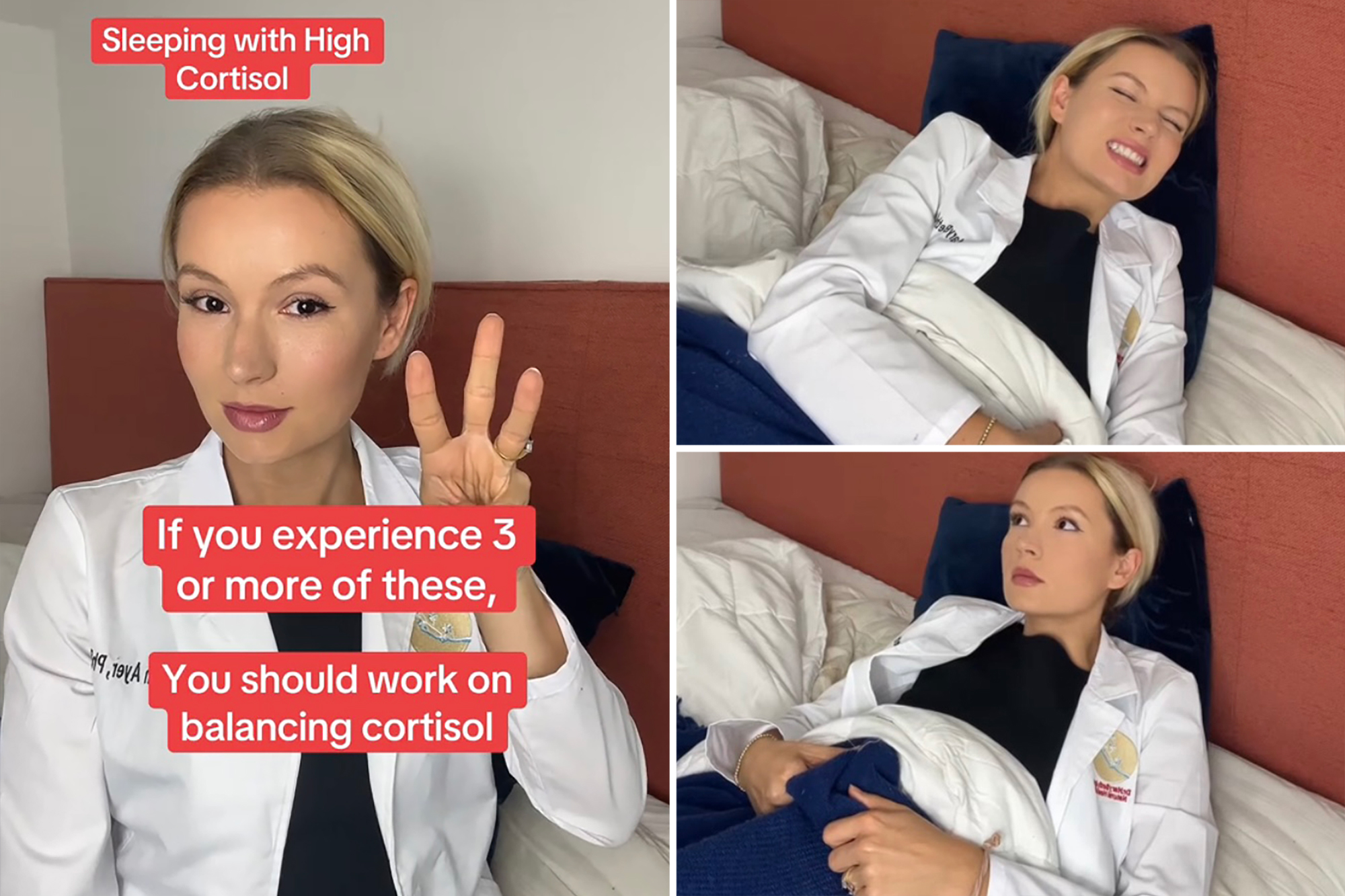10 Sleep Habits That Should Prompt a Visit to the Doctor

Have you ever found yourself tossing and turning at night, unable to get the restful sleep you desperately need? You’re not alone. For many, sleep can be elusive, plagued by habits that might be more than just an annoyance—they could signal a deeper issue. It’s time to stop losing sleep over poor sleeping habits and take action.
I personally know how frustrating it is to wake up feeling exhausted, even after what seemed like a full night’s rest. As someone who loves to cook and spend long days in the kitchen, I rely on a good night’s sleep to keep my energy up. When sleep becomes disrupted, it affects not just your mood but also your daily activities and overall well-being. Let’s talk about some habits that may point towards underlying health issues.
MaryBeth Ayer, a holistic practitioner based in Massachusetts, recently shared her insights on TikTok about how high levels of cortisol—our body’s main stress hormone—can wreak havoc on our sleep. Elevated cortisol can lead to various health problems, including weight gain and high blood pressure, but it also significantly impacts our ability to get quality rest. If any of these sound familiar, it might be time to consult with a healthcare professional.
Key Takeaways
- Sleep is crucial for physical and mental health; disruptions can indicate underlying issues.
- High cortisol levels might contribute to poor sleep habits.
- If you experience multiple problematic sleep behaviors, consider seeing a doctor.
Recognizing Problematic Sleep Habits
As we dive into these habits, remember that having one or two occasionally doesn’t necessarily mean there’s a problem. However, consistently experiencing multiple issues is worth discussing with your doctor. Here are ten habits that could signal it’s time for a check-up:
10 Sleep Habits That May Indicate Health Issues
- Waking up most nights between 3 and 4 am
- Experiencing intense, stressful dreams
- Excessive sweating during sleep
- Having racing thoughts before bed
- Pain in your shoulder, neck, or wrist upon waking
- Feeling tired throughout the day but awake at bedtime
- Tossing and turning frequently
- Grinding teeth at night (bruxism)
- Overheating in bed despite comfortable room temperature
- Waking up feeling exhausted even after sleeping enough hours
Steps to Improve Your Sleep Quality
If any of these habits are familiar, don’t worry—there are steps you can take to improve your sleep before things get out of hand. Regular exercise is a great place to start as it helps reduce cortisol levels naturally. Pair this with mindful eating; try incorporating foods that stabilize blood sugar levels such as Greek yogurt, peanut butter, or bananas an hour before bedtime. These small snacks can work wonders for balancing out your hormones overnight.
Avoid caffeine late in the day and focus on stress management techniques such as meditation or deep-breathing exercises. Creating a calming pre-sleep routine can help signal your body that it’s time to wind down. Remember that your bedroom should be a sanctuary for rest—a cool, dark environment free from distractions like screens will promote better rest.
When to Seek Medical Advice
If you’ve made lifestyle changes and still find yourself struggling with poor sleep quality or if you notice symptoms aligning with Cushing’s syndrome—such as unexplained weight gain or muscle weakness—it’s crucial to seek medical advice promptly. Early diagnosis and intervention can make all the difference in managing any underlying conditions effectively.
Amy Schumer bravely shared her journey with Cushing’s syndrome earlier this year, highlighting the importance of understanding hormonal imbalances’ impact on health. Her experience serves as a reminder that we’re not alone in facing these challenges and that expert help is available when needed.
Final Thoughts
Your sleep is too important to ignore potential red flags. By recognizing problematic patterns early on and taking action through lifestyle adjustments or medical consultation when necessary, you’re setting yourself up for better health outcomes overall. Remember that everyone deserves quality rest—it’s the foundation for thriving daily life.
If you’re unsure where to start or need guidance tailored specifically for you, reaching out to healthcare professionals can provide clarity and direction tailored specifically for you!
,
,
,
,
,
,
,
,
,
